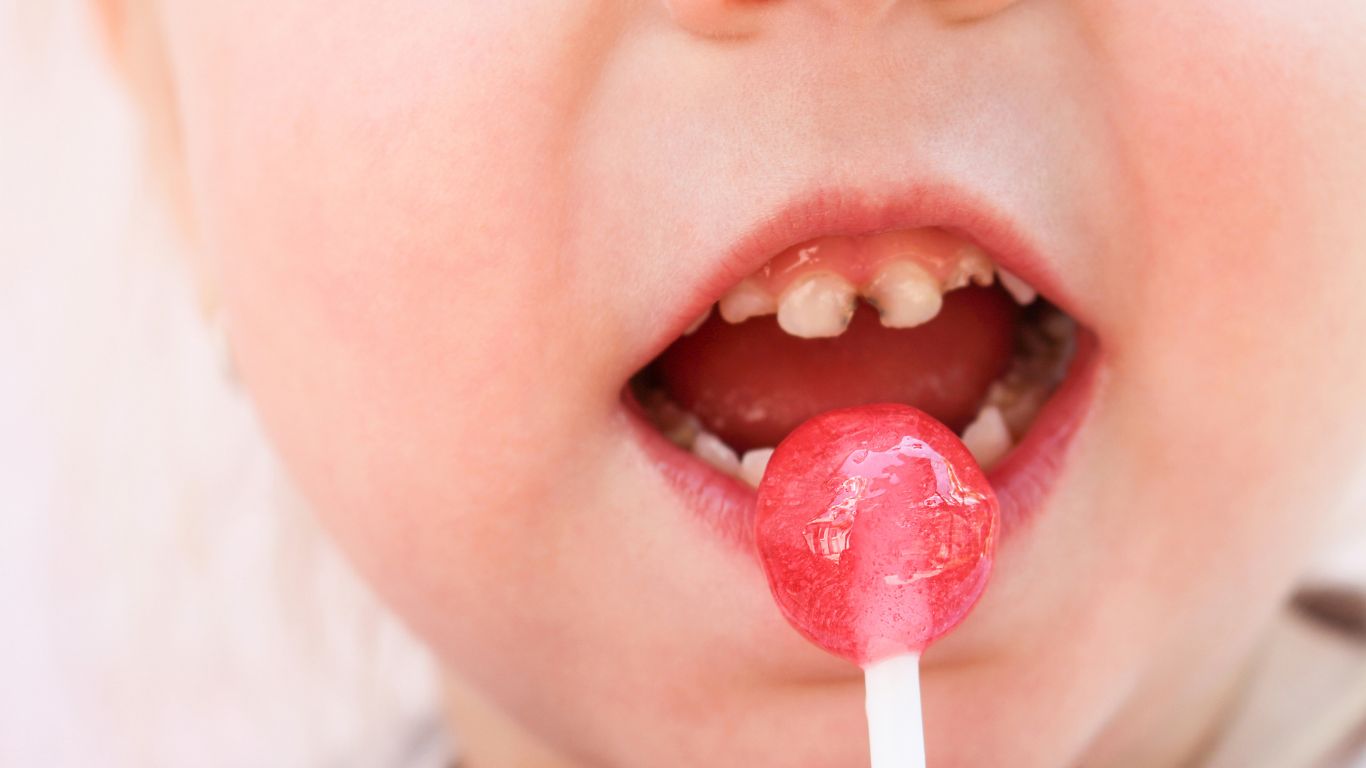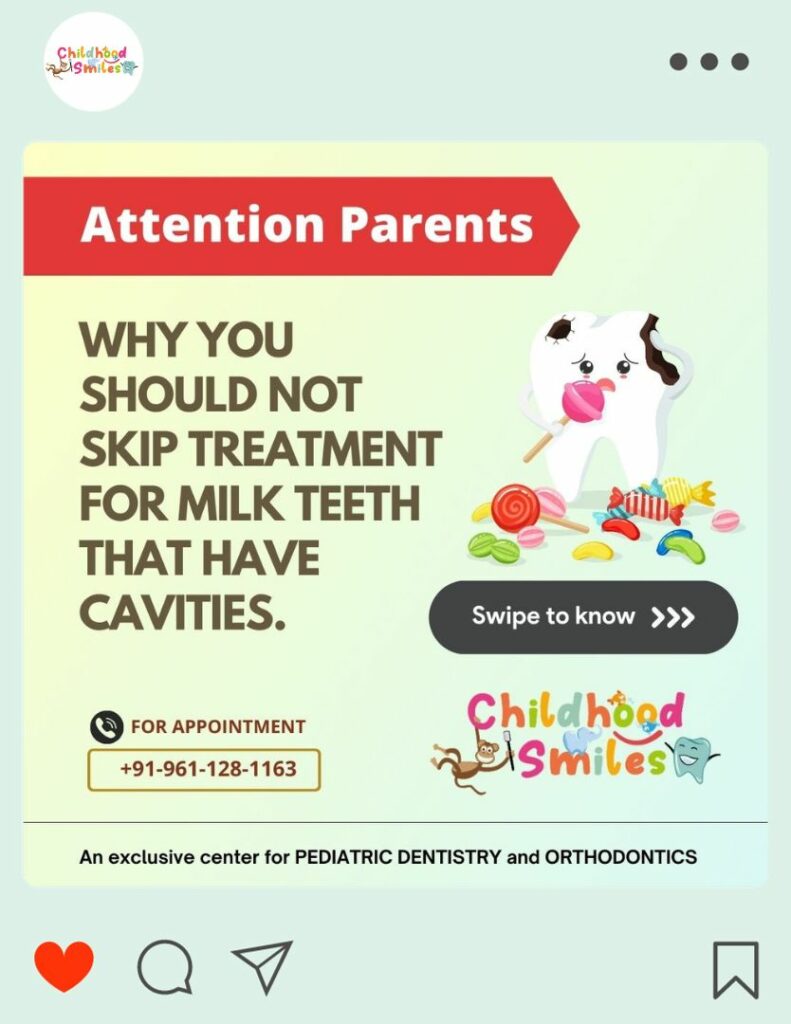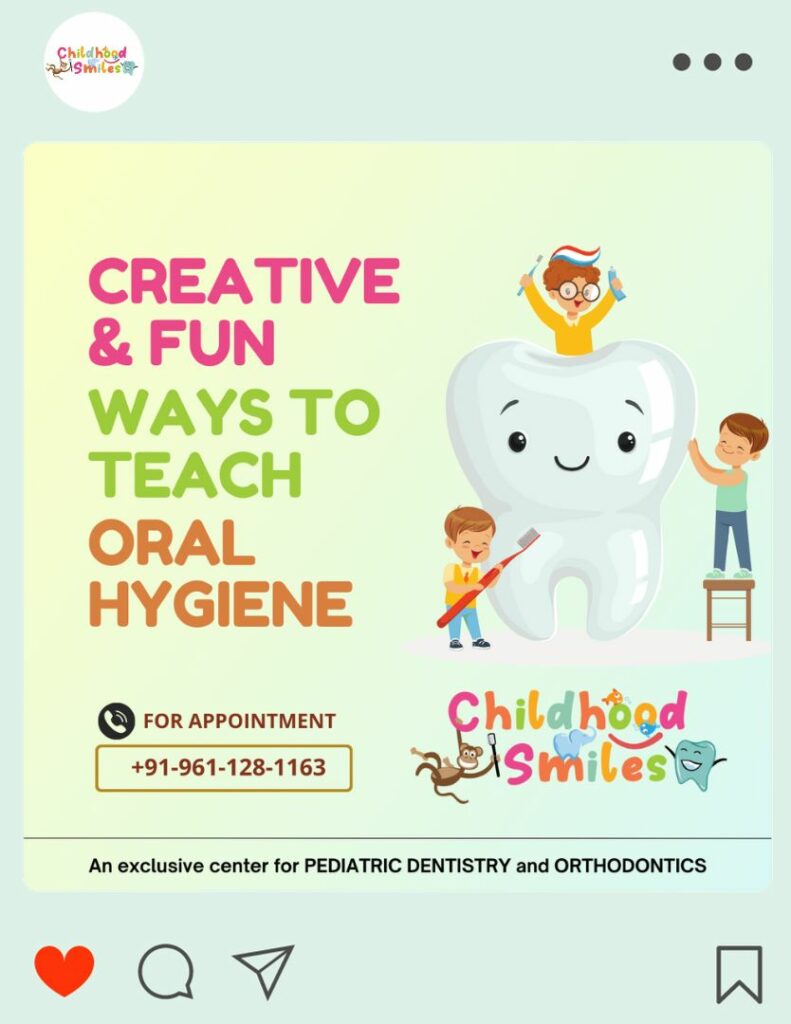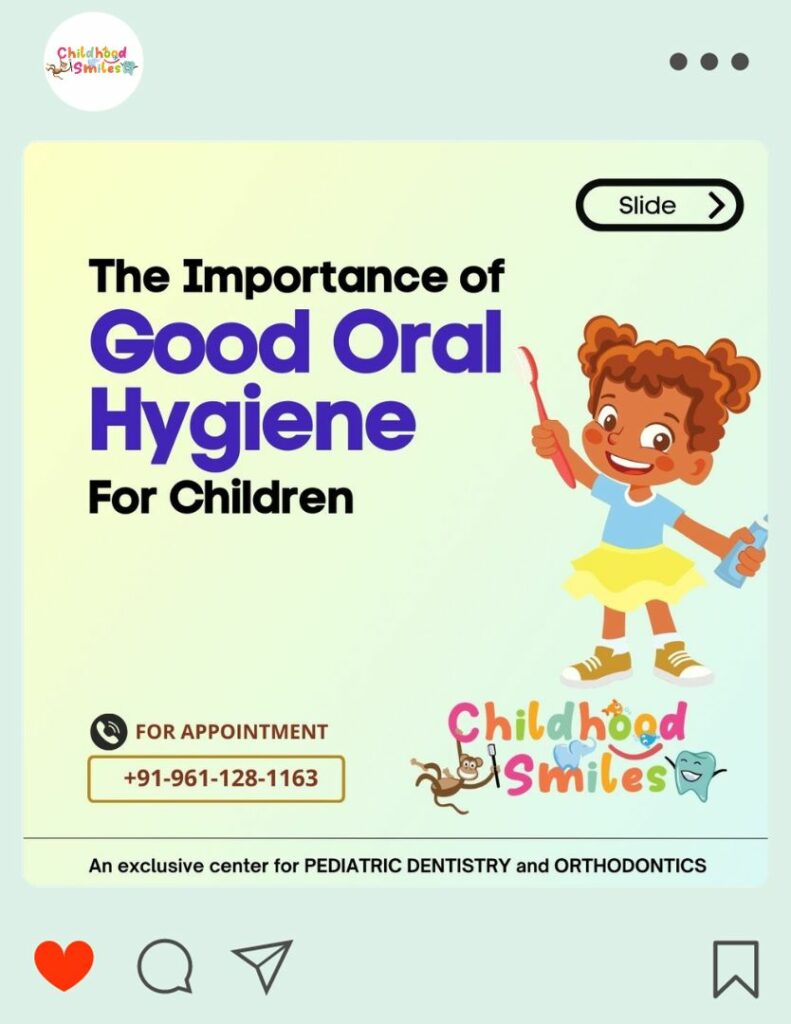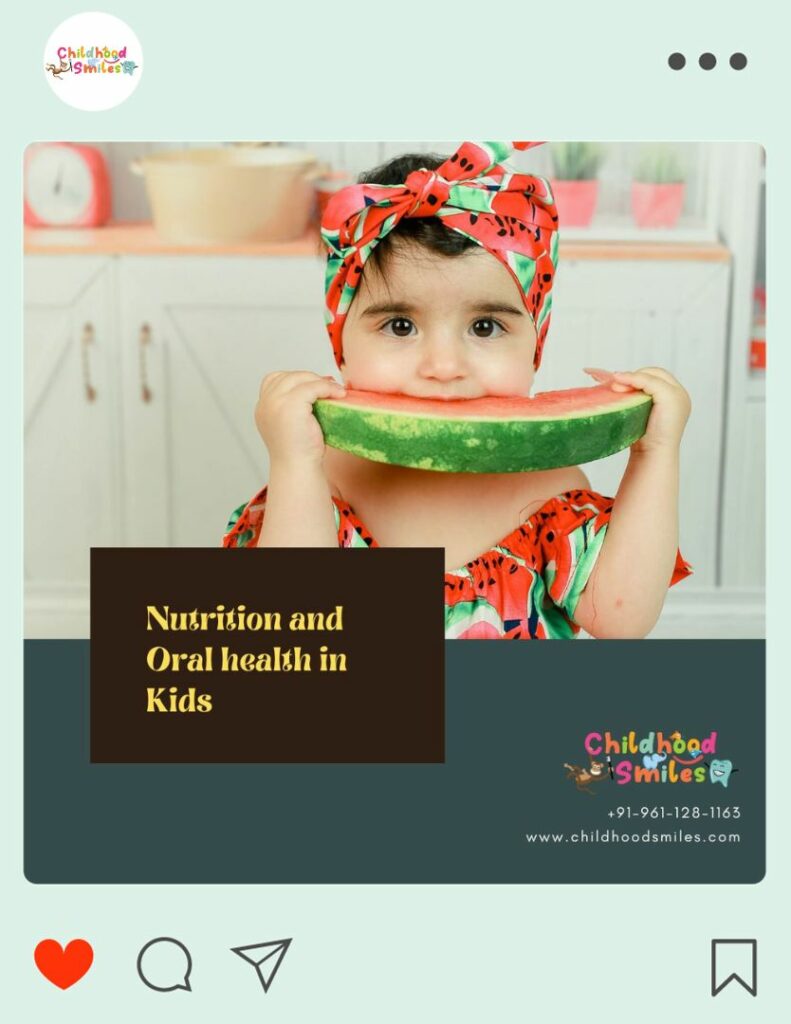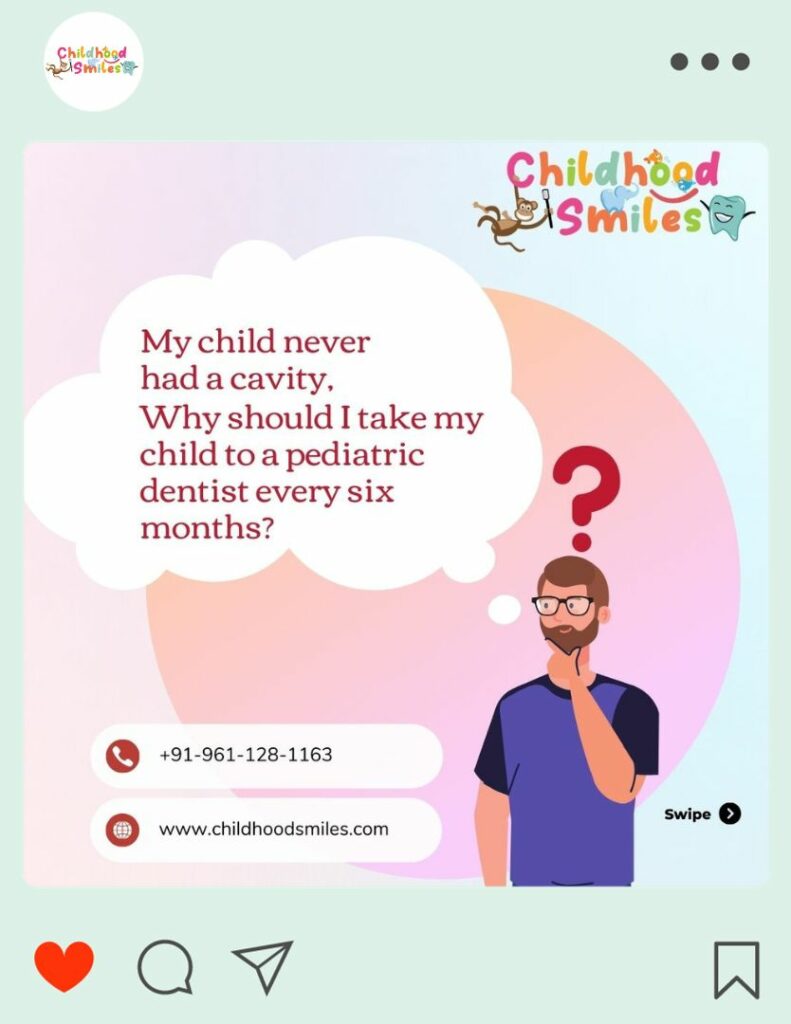How to Prevent Dental Cavities in Children: Top Strategies for Parents
Table of Contents
As a parent, ensuring the health and well-being of the child is always one of the top priorities. And oral health is one of the important components of your child’s overall health. Oral health plays a pivotal role in overall well-being. It affects your child’s nutrition, comfort, and confidence and is even associated with their performance in school. It’s not exaggerating to say good oral health is the foundational key to a healthier and happier life.
Dental cavities are the most common occurrence in children. It seems a superficial issue, but it runs deeper than what most parents generally think of. In most cases, this often remains untreated, especially in milk teeth, because parents think the cavities in the milk teeth will shed with the teeth and permanent teeth will replace them. They often forget the fact that milk teeth are the foundation of permanent teeth, and if the foundation is suffering, it will impact the upcoming erupting teeth as well.
We have seen cases where the child’s milk teeth are so severely affected by cavities that they were not able to eat and chew their food properly, resulting in nutritional deficiency, weight loss, pain, and discomfort. That not only affected their academic life but also severely affected their overall health. The parents took their child to us only when they saw facial swelling, deep cavities, and severe pain.
You may be surprised to know that most of these cavities can be prevented by taking some preventive measures at home and visiting your pediatric dentist periodically. Setting up a DENTAL HOME makes the whole task easy. It enriches parents with preventive guidelines, easy access to a pediatric dentist for personalized care, regular checkups, and preventive treatments to save their child from cavities and other oral problems.
In this blog, we will cover those preventive strategies that will help you as a parent to prevent dental cavities in your child. With the help of the proper knowledge and proactive measures, it can be 100% preventable. Let your child grow with a cavity-free smile, not with the memories of pain and cavities.
Understanding Cavities in Children.
Cavities are often referred to by various names: dental caries, tooth decay, milk bottle caries, or early childhood caries (if it happens in milk teeth). It affects children of all ages. To effectively prevent, it is equally essential to understand how they develop.
What are Dental Cavities?
Dental cavities are tiny holes forming on the teeth’ outer layer, known as enamel. Often, cavities start as small and harmless spots at the beginning that are not always easily noticeable. But over time, it grows and starts damaging the tooth. If left untreated, it can penetrate deeper into the tooth and cause infection, which may require more invasive dental procedures.
How Do Cavities Develop in Kids?
Cavities are often the result of a process known as Demineralization. The bacteria in the mouth produce acids, which in turn weaken the outer layer of the tooth and cause these tiny holes. We can divide the whole process into 4 steps for easy understanding.
![]() When the child eats something, the sugar and starch in the food remain on the teeth, and bacteria feed on them.
When the child eats something, the sugar and starch in the food remain on the teeth, and bacteria feed on them.
![]() These bacteria produce acids that attack the tooth enamel and cause demineralization.
These bacteria produce acids that attack the tooth enamel and cause demineralization.
![]() The acid, bacteria, saliva, and food particles all together combine to form a sticky film called plaque that accumulates on the tooth surface in hard-to-reach areas.
The acid, bacteria, saliva, and food particles all together combine to form a sticky film called plaque that accumulates on the tooth surface in hard-to-reach areas.
![]() When this plaque is not removed regularly by brushing, flossing, or teeth cleaning, it causes tooth erosion and cavities.
When this plaque is not removed regularly by brushing, flossing, or teeth cleaning, it causes tooth erosion and cavities.
Common Causes of Cavities in Children
Several factors contribute to the development of cavities in children, with dietary choices playing a significant role. Common causes include:
![]() Frequent consumption of sugary snacks and drinks.
Frequent consumption of sugary snacks and drinks.
![]() Inadequate brushing and flossing.
Inadequate brushing and flossing.
![]() Insufficient fluoride in drinking water or toothpaste weakens the enamel’s resistance to acid.
Insufficient fluoride in drinking water or toothpaste weakens the enamel’s resistance to acid.
![]() Putting the child to sleep with a milk bottle or a juice that contains sugar.
Putting the child to sleep with a milk bottle or a juice that contains sugar.
![]() Missing dental check-up appointment.
Missing dental check-up appointment.
![]() Genetical conditions.
Genetical conditions.
Top Cavity Prevention Strategies for Parents
1. Proper Oral Hygiene
Proper oral hygiene is one of the most important strategies in preventing dental cavities and other oral problems in your children. Some of the actionable points are listed below for your easy reference.
![]() Teach children to brush their teeth twice a day using fluoride toothpaste.
Teach children to brush their teeth twice a day using fluoride toothpaste.
![]() Young children take time to develop manual dexterity to brush and floss effectively. This generally happens around the age of 7 or 8. Until then, you should monitor and assist your child in brushing and flossing activities.
Young children take time to develop manual dexterity to brush and floss effectively. This generally happens around the age of 7 or 8. Until then, you should monitor and assist your child in brushing and flossing activities.
![]() It is also important to ensure that your child uses appropriate brush and toothpaste. The correct size of the brush head and the selection of the right toothpaste is essential.
It is also important to ensure that your child uses appropriate brush and toothpaste. The correct size of the brush head and the selection of the right toothpaste is essential.
![]() When the two teeth start touching each other, introduce flossing in the oral hygiene routine.
When the two teeth start touching each other, introduce flossing in the oral hygiene routine.
![]() Make Dental Care a fun and positive experience for children, which helps them to inculcate this good habit of oral hygiene for a lifetime.
Make Dental Care a fun and positive experience for children, which helps them to inculcate this good habit of oral hygiene for a lifetime.
![]() In the beginning, you can use rewards and encouragement to reinforce good oral habits.
In the beginning, you can use rewards and encouragement to reinforce good oral habits.
![]() Lead by example and be a positive role model for oral care. Children learn what they see around them.
Lead by example and be a positive role model for oral care. Children learn what they see around them.
2. Healthy Diet Habits
Dietary choices have a direct correlation with preventing dental cavities. Some of the actionable points are the following:
![]() Always promote a balanced diet rich in fruits, vegetables, and whole grains.
Always promote a balanced diet rich in fruits, vegetables, and whole grains.
![]() Encourage the consumption of water instead of sugary drinks and carbonated beverages.
Encourage the consumption of water instead of sugary drinks and carbonated beverages.
![]() It is always better to chew the fruit rather than have the juices.
It is always better to chew the fruit rather than have the juices.
![]() Limiting sugary snacks and beverages, especially between meals, is essential.
Limiting sugary snacks and beverages, especially between meals, is essential.
![]() Children love eating candies. Avoid sticky candy and foods that can get stuck in the teeth. Also, minimize hard candy that can damage teeth.
Children love eating candies. Avoid sticky candy and foods that can get stuck in the teeth. Also, minimize hard candy that can damage teeth.
![]() Encourage rinsing with water after consuming snacks. This will help to remove the residual food particles and reduce the chances of bacteria feeding on them.
Encourage rinsing with water after consuming snacks. This will help to remove the residual food particles and reduce the chances of bacteria feeding on them.
3. Considering Preventive Treatment
![]() Dental Cleaning and Check-ups
Dental Cleaning and Check-ups
Dental cleaning helps prevent cavities in two ways: it cleans away the deposited plaque to prevent cavity formation and helps your pediatric dentist catch cavities, if any, at an early stage.
![]() Topical Fluoride Application
Topical Fluoride Application
Your pediatric dentist will superficially apply fluoride on the teeth susceptible to cavities. This is one of the preferred preventive dental treatments, which increases the teeth’ strength and makes them cavity-proof. The procedure takes very little time, and your child can consume food shortly after it.
![]() Dental Sealants
Dental Sealants
Dental sealants are usually applied to the molar teeth. The chewing surface of molar teeth often has irregularities or pits, which becomes an active site for bacteria breading because food debris can easily lodge up there. Application of dental sealants can smoothen those pits and minimize the chances of food getting stuck there, which may otherwise lead to Dental Cavities.
4. Feeding Habits
![]() Reduce Nighttime Bottle Use
Reduce Nighttime Bottle Use
You should avoid putting children to bed with a bottle containing milk, juice, or any other sugar liquid. It remains on your child’s teeth for a prolonged period and gives bacteria their favorite food (sugar) to consume, producing acids, leading to tooth cavities. If it is unavoidable, choose water instead of milk or any other drink.
![]() It is also worth noting that cleaning gums and teeth (if any) after breastfeeding is also important. You can use a wet wipe or soft cotton cloth to do so.
It is also worth noting that cleaning gums and teeth (if any) after breastfeeding is also important. You can use a wet wipe or soft cotton cloth to do so.
![]() Prolonged use of pacifier
Prolonged use of pacifier
Pacifiers soothe babies and help them remain calm, but using honey or any other sweet liquid inside the pacifier can be the culprit for the oral cavity. Further prolonged use of the pacifier, especially after age 2, can cause other dental problems, too. It is important to discourage this prolonged use.
5. Oral Health Education
Oral education always plays a major role in preventing dental cavities.
![]() Educate your children about the importance of oral hygiene, a balanced diet, cavity prevention, etc.
Educate your children about the importance of oral hygiene, a balanced diet, cavity prevention, etc.![]() Discuss with them the danger of bad habits like pacifier sucking, thumb-sucking, nail-biting etc.
Discuss with them the danger of bad habits like pacifier sucking, thumb-sucking, nail-biting etc. ![]() Whenever you visit a pediatric dentist, ask for strategies to follow at home to prevent dental cavities and other oral health issues.
Whenever you visit a pediatric dentist, ask for strategies to follow at home to prevent dental cavities and other oral health issues.
6. Monitor Dental Development
Monitoring the changes happening in your child’s mouth periodically will also help you to understand if there is any problem. If you find a difference, inform your pediatric dentist and seek their guidance. Any oral problem caught and treated at an early stage can save your child from major invasive treatment, pain, and discomfort.
Recognizing Early Warning Signs
What to look for:
![]() Tooth Discoloration: If you notice white or brown spots on your child’s teeth, it could indicate the initial stages of enamel demineralization, a precursor to cavities.
Tooth Discoloration: If you notice white or brown spots on your child’s teeth, it could indicate the initial stages of enamel demineralization, a precursor to cavities.
![]() Tooth Sensitivity: If your child experiences pain or sensitivity while eating or drinking, especially with hot, cold, or sweet items, this may signal a dental issue that needs attention.
Tooth Sensitivity: If your child experiences pain or sensitivity while eating or drinking, especially with hot, cold, or sweet items, this may signal a dental issue that needs attention.
![]() Persistent Bad Breath: While occasional bad breath is common, persistent bad breath could be a sign of bacteria accumulation or an underlying dental problem.
Persistent Bad Breath: While occasional bad breath is common, persistent bad breath could be a sign of bacteria accumulation or an underlying dental problem.
![]() Difficulty Chewing or Eating: If your child avoids certain foods or has difficulty chewing, it may be due to pain or discomfort related to dental issues.
Difficulty Chewing or Eating: If your child avoids certain foods or has difficulty chewing, it may be due to pain or discomfort related to dental issues.
![]() Swelling or Redness: Swollen gums or redness around the gumline can be indicative of gingivitis or other oral health concerns.
Swelling or Redness: Swollen gums or redness around the gumline can be indicative of gingivitis or other oral health concerns.
![]() Any major visible changes
Any major visible changes
The Role of a Pediatric Dental Clinic in Cavity Prevention in Children
Apart from following anticipatory guidelines to prevent cavities at home, the support and expertise of a pediatric dental clinic play an important role in cavity prevention in children.
![]() Specialized Care for Children
Specialized Care for Children
A child-friendly and comforting environment offered by exclusive pediatric dental care centers like Childhood Smiles sets the stage for a positive dental experience for your children, encouraging regular visits and developing lifetime good habits.
![]() Early Detection and Prevention
Early Detection and Prevention
Through regular check-ups, your pediatric dentist can identify the earliest signs of dental issues, such as weakened enamel, tiny lesions, or areas of concern. Catching issues early on allows for prompt intervention and prevention.
![]() Education and Guidance
Education and Guidance
Pediatric dentists and their teams educate both children and parents about the importance of oral health and cavity prevention.
![]() Preventive Treatments
Preventive Treatments
Pediatric dental clinics offer a range of preventive treatments specifically designed for children, including fluoride treatments, dental sealants, and customized prevention plans.
Your Child's Cavity-Free Smile: A Lifelong Investment
Preventing dental cavities in children is essential for their overall well-being. Cavities are often painless in their early stages but, if left untreated, can have severe consequences on your child’s oral health and overall well-being.
Parents can play a vital role in cavity prevention through proper oral hygiene practices, a healthy diet, and regular dental check-ups. Establishing a dental home helps ease the process and ensure your child’s mouth remains healthy.
An Exclusive Pediatric Dental Centre like Childhood Smiles can empower parents to ensure their children enjoy pain-free, cavity-free smiles and long-term oral health.
Why consider Childhood Smiles for your child's oral care?
There are several reasons to consider pediatric dental care with us for your child:
![]() Qualified professionals: Our pediatric dentist and orthodontists are highly trained and experienced in working with children. They have the knowledge and expertise to design a customized treatment plan that meets your child’s unique needs.
Qualified professionals: Our pediatric dentist and orthodontists are highly trained and experienced in working with children. They have the knowledge and expertise to design a customized treatment plan that meets your child’s unique needs.
![]() Individualized approach: We take a personalized approach to oral care, tailoring our treatment plans to each individual child. This ensures that your child receives the right level of support and guidance to achieve their goals.
Individualized approach: We take a personalized approach to oral care, tailoring our treatment plans to each individual child. This ensures that your child receives the right level of support and guidance to achieve their goals.
![]() Positive and encouraging environment: We create a positive and supportive environment for your child to learn and grow. Our therapists/doctors are patient, compassionate, and skilled at working with children who may be experiencing anxiety or other challenges.
Positive and encouraging environment: We create a positive and supportive environment for your child to learn and grow. Our therapists/doctors are patient, compassionate, and skilled at working with children who may be experiencing anxiety or other challenges.
![]() Comprehensive oral care for all your child’s needs: Childhood Smiles is an exclusive pediatric oral care center in Bangalore. We offer a complete range of treatments that your child would need to maintain an excellent oral health and overall well-being. Our team of doctors/dentists are experienced in handling complex cases of oral problems in children.
Comprehensive oral care for all your child’s needs: Childhood Smiles is an exclusive pediatric oral care center in Bangalore. We offer a complete range of treatments that your child would need to maintain an excellent oral health and overall well-being. Our team of doctors/dentists are experienced in handling complex cases of oral problems in children.

